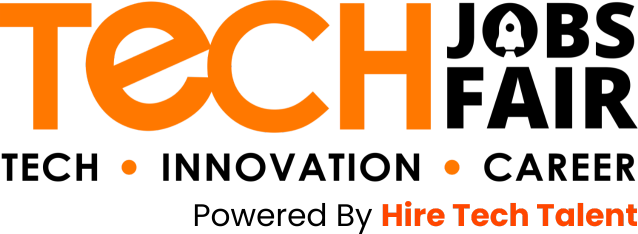- « Previous blog
-
March 16, 2020
-
4534
- Next blog »
For those just beginning to study a technology career, it’s best to avoid the inducement to jump into a possibly expensive, time-demanding teaching program unless you know it’s the right program and career path for you.
Whether you’re entering the workforce for the first time or bearing in mind a new career choice after years of employment, it’s important to think about the prospects you have to succeed in a given job and its global demand.
Research and Pick Your Focus:
Now a day, technical skills are in demand in the self-employed space, and there are ways to pick up contract work or small side projects that can add to your income while you test the other ways.

Once you identify the potential for a career where your skills will always be in high demand and you have the tractability you desire, the question remains… How do you get started with a career in tech?
Teach Yourself:
Tech industries value services and understanding over a degree. Some larger corporations will not interview applicants who don’t have a four-year degree, so keep that in mind if you’d like to follow a corporate position, you might need a degree.
However, many companies are looking to hire anyone who can just skillfully do the work and solve the tech difficulties that need to be solved.
Read Tech Books:
To get yourself educated, visit your local library or bookstore, and head to the tech books section. Look through books about the industry, as well as precise topics like programming and networking, will help you discover the variation of jobs in the field. Research and reading are key factors to get yourself started.
Learn to code:
Code samples or postings on the code-sharing site Github.com mattered most. You can absolutely save yourself time and money by educating yourself on how to program.

A programmer is constantly learning new coding languages and familiarizing to changes in technology all the way through their career, so being able to follow a tutorial, and learn on your own is actually a really important skill for you to have in a tech-related field. The internet is full of properties for learning to program.
Learn HTML:
Everyone who enters in the tech field, are now expected to know HTML, techies the language used to display Web pages. Programmers, technical writers, software architects, and many others should consider learning HTML as their first step in moving beyond browsing and examine the Internet’s internal workings.
Write a Program:
Programming is a vital skill for technology pros. Many languages exist, such as C++, Java, C#, Visual Basic and more learning all of them are really important if you excel in the tech department and expand your expertise in unexpected ways.
Learning JavaScript is one comparatively quick way to get in progress in programming. You’ll require a Web browser, a text-editing program and the help of an online tutorial to acquire more knowledge.
When it comes to tech skills, one of the best ways to learn is simply to do. You can teach yourself how to database or design with online resources, books, videos, and tutorials.
Install an Operating System:
There are many operating systems, though you are possibly most familiar with Windows. If you install and run the Linux operating system, you’ll achieve several things at once. You’ll acquire about the open-source software measure, and you’ll also get a quick development on an OS other than Windows.
Build a Website:

Use your knowledge of HTML and JavaScript to exhibit your Web technology talent. Experimentation, testing can help you out in learning even more. You can create your website on any platform which supports more coding that way you can enhance your skills in an effective way.
Register in a Course or Workshop:
Public colleges, universities, and technical training centers often propose weekend or evening workshops with basic instructions in programming, Web development, and networking.
Online courses can help you learn and gain more knowledge in a very short period of time. They are a comparatively, economical way to gain vision into the field and them.
Offer Your Technical Talent:
You may be very brilliant and experimenting, but also find someone who needs computer assistance. This will test your capability to interconnect clearly about technology, an essential skill for tech professionals.
Nonprofits, religious organizations, and other community groups may also be in need of individuals with computer expertise, however, newly learned.
You can take on small projects that you can sell through an app store or offer to freelance clients when you are finished.
If you have any friends or acquaintances who work as freelancers in a tech field, ask if they have any work or projects they can throw your way as you’re learning.
They will also be a great resource for you if you have questions along the way.
Underwrite to an Open Source Project:
Even if you’re not a pro with PHP or MySQL it doesn’t mean that you’re not ready to contribute to an open-source project. The open-source undertaking needs people to help stamp out bugs and write citations.
Any involvement will help you make links and learn about techie life.
Attend an Industry Organization Meeting:
Technology specialists working in the industry’s dugouts can provide lots of leadership to those just getting started. They can also serve as counselors to assist you as you embark on a tech career.
You can find tech mentors, at industry groups, many of them with college chapters and mentoring programs. Be upfront with your need for advice, and ask lots of questions.
Determine Tech Job Roles:
Too many would-be techies blast into the field without thinking through the innumerable job roles available.
There are sites that will help you sort through the possibilities with its still-evolving taxonomy of technology job roles.
Exhibit your skills:
once you have worked hard and got all the required skills by completing small projects on your own, or any other way that you opted to get yourself educated, you could pursue a small company and ask if you could work for them in an internship style role.
You can explain to them that you are self-taught and want to keep learning as you move forward. They will appreciate your ingenuity and the fact that you will be prepared to work for less as you gain experience.
You will have to show that your self-taught skills are up to extinguish, but if you took the learning procedure seriously that shouldn’t be tough to do.
When you’re ready, apply for entry-level positions at companies that don’t necessitate a bachelor’s degree. You also have the option to start your freelancing career from there. Remember, most managers and business owners would prefer to have a skilled applicant than one with a degree but no working experience.
Build out your resume:
When you’re all set with your technical skills then it’s now time to make a new resume. This is where you can really use your creativity to outlook from the rest of the crowd.
If you’re altering careers into tech, that means that you have all kinds of previous experience from other work that gives you an advantage over people who don’t.
Spend time thinking about each of your previous experience.
Be sure to make it clear in your “About Me” declaration that you are looking to changeover your career into a tech role. Clearly, list courses, you’ve taken or certificates you’ve received. Confidently list off tools or programming languages you’ve mastered, and provide links to tasks you’ve worked on.
Interview prep:
Tech industry interviews are usually a mixture of discoursing previous projects and then demonstrating your coding and algorithm skills with some kind of the corresponding programming or whiteboard walk-through.
To prepare, review all of your projects and check out the book Cracking the Coding Interview for practice problems. To get over the concerns of coding while someone watches, try asking a friend or family member to do a pretend interview with you.
Don’t be afraid to start small:
If you think an entry-level job for an IT career includes programming and high-level problem-solving, possibly you need to adjust your opportunities. Most IT workers commit a lifetime to pursue knowledge in a given field. Don’t overlook the level of on the job experience and learning you can get in a non-traditional IT role.
The experience you gain from studying IT subjects at home and working towards certification heavily influences your ability to get an IT job.

These jobs rarely require experience and can give you enough information to get a foot in the door elsewhere. The better your foundation in tech, the higher the chance you can get hired without having all that technical experience.
Use this starter job to push yourself into your career goals! Keep learning and following IT work.
Join 20,000+ Subscribers
Get exclusive access to new tips, articles, guides, updates, and more.


